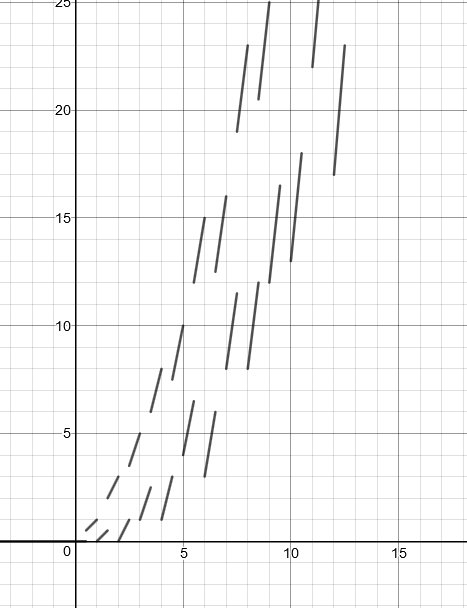27
I call this sequence "the Jesus sequence", because it is the sum of mod.</pun>
For this sequence, you take all the positive integers m less than the input n, and take the sum of n modulo each m. In other words:
$$a_n = \sum_{m=1}^{n-1}{n\bmod m}$$
For example, take the term 14:
14 % 1 = 0
14 % 2 = 0
14 % 3 = 2
14 % 4 = 2
14 % 5 = 4
14 % 6 = 2
14 % 7 = 0
14 % 8 = 6
14 % 9 = 5
14 % 10 = 4
14 % 11 = 3
14 % 12 = 2
14 % 13 = 1
0+0+2+2+4+2+0+6+5+4+3+2+1=31
Your goal here is to write a function that implements this sequence. You should take the sequence term (this will be a positive integer from 1 to 231) as the only input, and output the value of that term. This is OEIS A004125.
As always, standard loopholes apply and the shortest answer in bytes wins!


5Great explanation – Esolanging Fruit – 2017-12-15T03:32:13.917